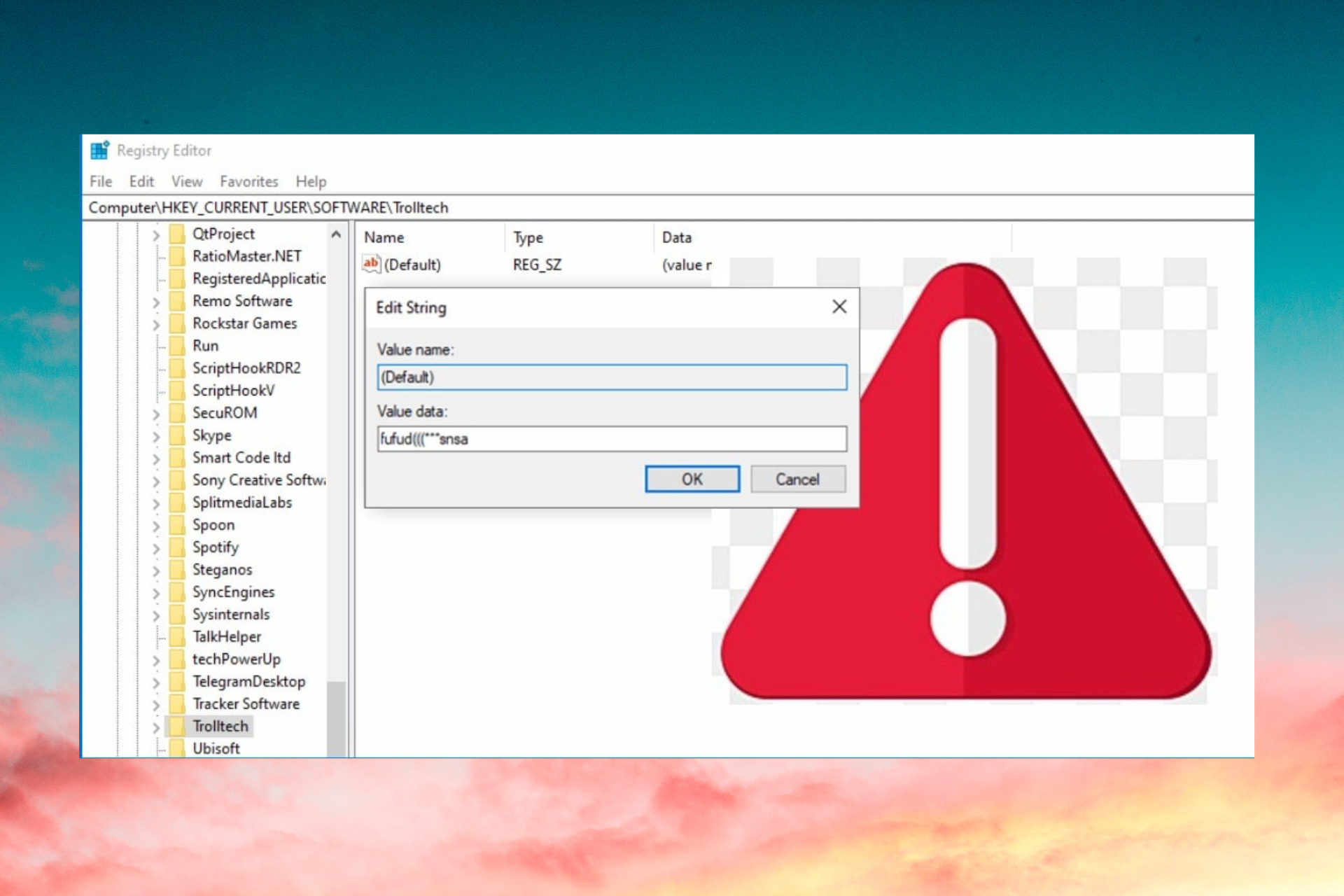Can a Registry Key be a Virus? How to Check on Windows
The Windows Registry is a database that contains settings and configurations for the operating system, hardware, and installed software.
Each registry key stores values relating to a particular area. For example, one registry key may contain information about the user’s desktop background, while another is reserved for system startup settings.
Every program also has its own registry key.

If viruses and malware interfere with the registry, it can lead to software and hardware problems, or even complete system failure.
How do viruses damage the Registry?
Malware and viruses can affect the Windows registry in many different ways. Here are some examples of how they can damage the Windows Registry:
- Registering new keys – By creating new registry keys and values, it legitimizes the malware on the system and allows it to run automatically on startup and perform other malicious actions.
- Modifying existing entries – Malware can edit existing registry keys and values to change the behavior of a legitimate program, disable security features, or perform other malicious tasks.
- Deleting data – Malware often deletes registry keys and values to cause damage and prevent the system from functioning properly.
- Bypassing security – By targeting the registry keys of antivirus software or firewall settings, viruses can disable or bypass security measures, making them harder to detect and remove.
- Storage – Viruses and malware sometimes store sensitive information, such as passwords or credit card numbers in the registry to exfiltrate it to the attacker’s server.
- Attacking system files – Alongside the registry, malware will also attack associated system files, such as DLLs or drivers.
Can a Registry Key itself be a virus?
Technically, a registry key itself is not a virus but it can be used by malware during the process of spreading a virus and attacking your computer.
Whole keys can be made up of malicious code, though malware often hides within existing values to make it harder to detect.
How do I know if the Registry is damaged?
Your registry could be damaged by malware if Windows performance has slowed down, you experience regular software or system crashes, or when installations seem to fail.
How to clean the Registry of viruses
To successfully clean an infected Windows Registry, it can often take multiple attempts. This is because most antivirus software focuses on the malware and viruses themselves while overlooking some of the damage and remnants left behind.
1. Use an antivirus
- Type security into the Windows Search bar and open the Windows Security
- Click on the Virus & threat protection

- Click the Scan options link and perform a Full scan.

- Sit tight as Windows scans your entire system.
Windows will automatically quarantine any threats it deems to be harmful, though you can restore files you believe to have been incorrectly flagged.
Windows Defender is not a bad tool, but you should use a reputable third-party antivirus program like Avira to make sure nothing was left behind.
2. Use a Registry Cleaner

Although Windows has a built-in registry editor, we don’t recommend using it to remove malware keys manually. Editing or deleting the slightest value by accident can further damage the system.
Instead, a good registry cleaner like Fortect will:
- Scan the registry for invalid, obsolete, or unnecessary entries.
- Repair and remove problematic registry entries that may be causing system instability.
- Handle malware damage and find other potentially unwanted programs to remove.
- Replace any missing or damaged Windows files with clean copies from its repository.
By repairing malware corruption and reducing the size and complexity of the registry, Fortect improves system stability and responsiveness.
All you have to do is:
- Download and Install Fortect on your system.
- Open the program and accept the system scan.
- It will find problems with the registry and other areas of Windows.
- Click through to fix the registry or choose Start Repair to fix all Windows problems.
Tip: Keep Fortect on your computer to perform regular scans. This way you can maintain an efficient and secure registry.
Conclusion
Viruses or malware can use registry keys to modify the behavior of a Windows system. Malware can alter or create new registry keys to reinfect your PC, evade detection, or perform malicious actions.
Therefore, it is important to regularly monitor the registry for errors and scan your system for malware using Windows and other reputable antivirus programs.




![How Harmful is a Broken Registry? [Fix Registry Damage]](https://wp-cdn.fortect.com/uploads/2023/04/21133333/registry-issues-425x300.jpg)

